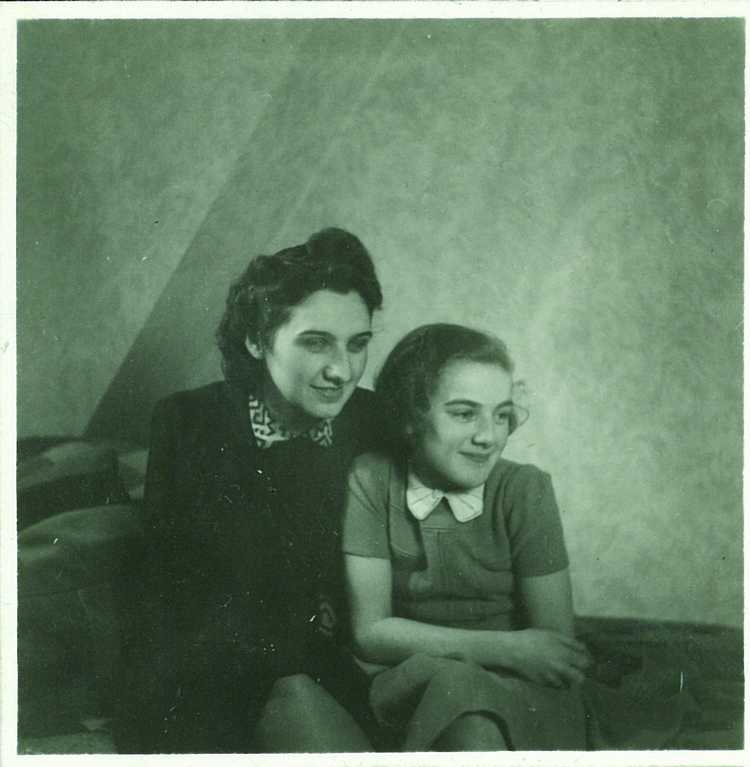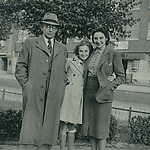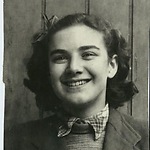Ellien Lissaur was born on the September 2nd 1930 in Amsterdam, as the daughter of Jessiah Lissaur and Lieselotte Lissaur (nee Ballin).
Jessiah and Lieselotte, also called Lilo, had married a year earlier. Jessiah was from a wealthy, influential Jewish family from Amsterdam, who reportedly even had ties with the Dutch Queen.
Ellien, also nicknamed Puppi, had a very pleasant childhood, growing up in the comfort of her fathers wealth and being cared for lovingly by her mother Lilo. The two of them made frequent trips to Frankfurt, where Lilo was originally from, to visit her grandparents Georg und Magarete Ballin, who owned and ran a big clothing manufacturer Reihing-Schreiber.
In 1936 Lilo took in her niece Anneliese. Anneliese was the daughter of Lilo’s older sister Ella. Anneliese lived with the Lissaurs for most of 1936/37 being like a sister to Engelina who was only two years her junior. The two had a good life with all the comforts money could provide. The Lissaur’s marriage however started to crumble, with Jessiah being quite the playboy and Lilo taking ill quite frequently. Lilo and Jessiah divorced in 1937 and Anneliese was send back to Frankfurt.
In early 1938 when things were getting more and more dangerous in Germany, it was decided that Anneliese should travel back to Holland and stay with her aunt and cousin. Anneliese’s mother Ella had immigrated to the US, but since Anneliese’s visa had not been approved she had to stay behind with her grandparents.
After Germany invaded Holland Lilo and Puppi found themselves in a very dangerous situation. Lilo collected all the evidence she could to prove to the Nazi authorities that she in fact was half-Jewish, since her mother was in fact Christian. Fighting for the recognition of this fact, afforded Lilo slightly more liberties then being “declared” a Jew. Puppi however was found to be full Jewish and had to wear the star of David wherever she went.
Lilo tried to protect her daughter as much as she could, by hiding her in the apartment, making sure she would never wonder out. Living essentially in hiding Lilo managed to get her and Puppi through until August 1944. According to Lilo’s own recollection, recorded by the Holocaust Museum Los Angeles in 1990s, she was smuggling food stamps for the Jewish underground and one day a Nazi officer had followed her and caught her, arresting her and Puppi immediately.
Mother and daughter were brought to the transit camp Westerbork, where they awaited their transport to Germany. A few weeks later they were transferred to Ravensbrueck and shortly after to Bergen-Belsen where they spend the Winter of 1944 into the spring of 1945. During this time Puppi, who was going through a significant growth spurt this weakened her considerably and in addition to malnutrition, the conditions in the camp and the physical labor the women had to do, her condition was getting worse and worse. Lilo often tried to come up with plans on how to safe her daughter and how she could get Puppi out of the situation, but always pulled back last minute on any of these plans.
In the spring of 1945 Puppi and Lilo were yet again transferred to a camp in Neuengamme. Puppi’s health deteriorated rapidly. Unbeknown to mother and daughter, they had both contracted Typhoid in the camp. While being transported to yet another camp, the train Lilo and Puppi were on was stopped and liberated in the early days of May 1945. They were immediately transferred to Sweden where they received the medical attention they both so desperately needed. Unfortunately, after battling with Typhoid and malnutrition for almost a month, Puppi died in a quarantine unit in Sweden on June 4th, 1945, at only 14 years old. She was buried in a cemetery in Malmoe, Sweden.


